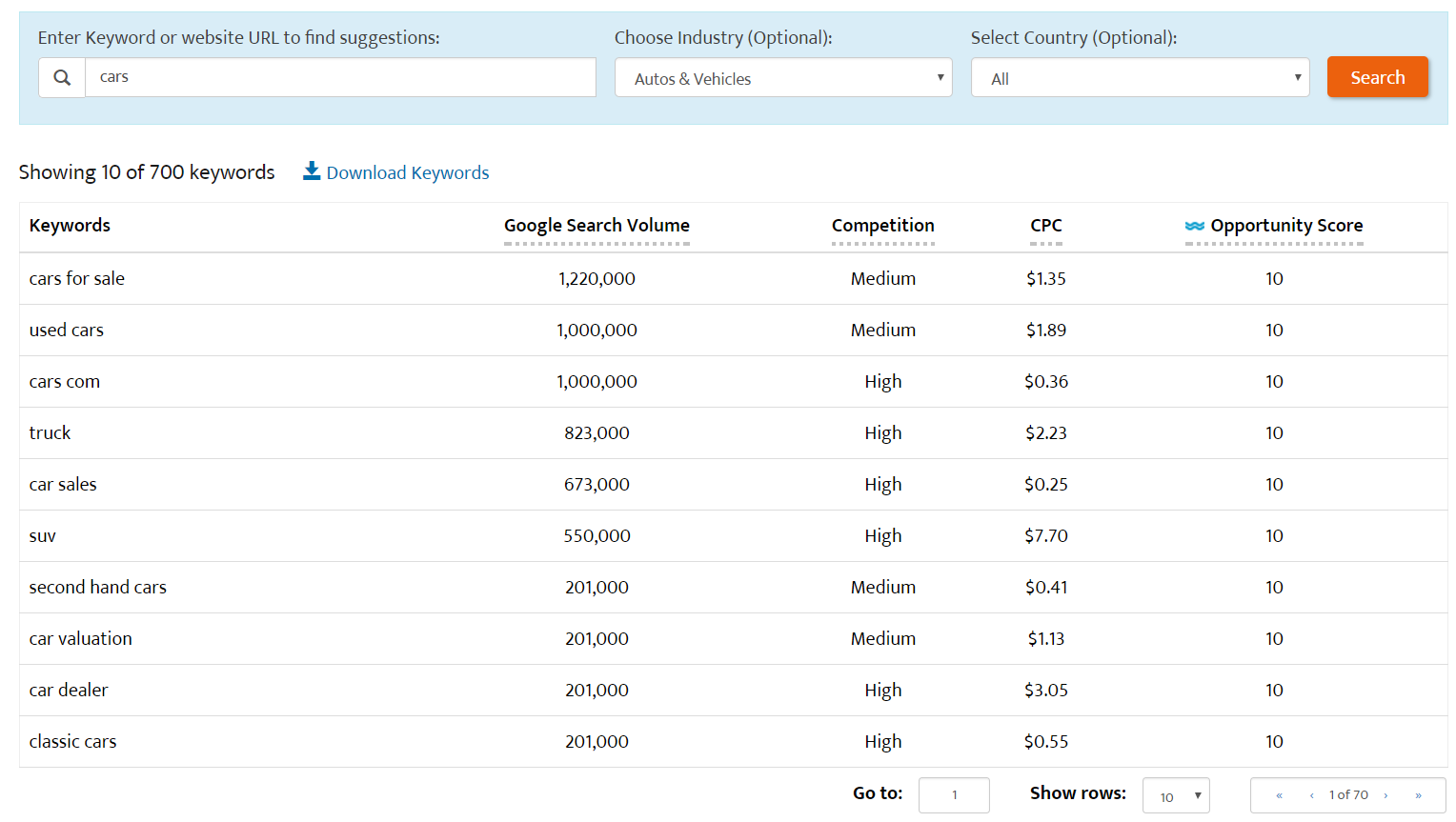Pulse of Information
Your source for the latest insights and updates.
Keyword Research: Digging for Gold in Search Rankings
Unlock hidden gems in search rankings with our ultimate guide to keyword research. Start digging for SEO gold today!
Top 10 Keyword Research Tools to Elevate Your SEO Game
In the ever-evolving world of digital marketing, effective keyword research is essential to enhance your SEO strategy. With numerous tools available, understanding which ones can truly elevate your SEO game is crucial. Here, we present the Top 10 Keyword Research Tools that can help you pinpoint the right keywords for your content. These tools not only aid in discovering high-traffic keywords but also provide insights into competition levels and user intent, allowing you to tailor your content accordingly.
- Google Keyword Planner - A staple for anyone serious about keywords.
- Ahrefs Keywords Explorer - Great for deep analysis and uncovering opportunities.
- SEMrush - A comprehensive tool for competitive research.
- Ubersuggest - User-friendly with a variety of features.
- KWFinder - Perfect for long-tail keyword searches.
- AnswerThePublic - Insightful for understanding user questions.
- Keyword Tool - Leverages Google Autocomplete for keyword ideas.
- Rank Tracker - Helps track keyword rankings over time.
- SpyFu - Excellent for competitor keyword analysis.
- Moz Keyword Explorer - Offers valuable metrics for keyword selection.

How to Identify High-Value Keywords for Your Content Strategy
Identifying high-value keywords is a crucial step in developing an effective content strategy. Start by understanding your target audience and what they are searching for online. Utilize tools like Google Keyword Planner or SEMrush to discover keyword volume, competition, and search intent. Focus on long-tail keywords, which are often less competitive and can attract more qualified traffic. For example, instead of just targeting 'digital marketing', you might consider 'best digital marketing strategies for small businesses'. This approach ensures that your content resonates with users' specific needs.
Once you have a list of potential keywords, analyze their relevance to your niche, the value they can bring to your audience, and their potential to drive traffic. Create a scoring system based on factors like search volume, competition level, and user engagement. Prioritize keywords that have a high score, as these will offer the best opportunities for ranking and conversion. Continually revisit and refine your keyword list based on current trends and performance metrics to ensure your content strategy remains effective and aligned with your business goals.
The Ultimate Guide to Long-Tail Keywords: Unlocking Hidden Search Potential
If you're looking to enhance your SEO strategy, understanding long-tail keywords is crucial. Unlike popular head terms that attract significant traffic but also face fierce competition, long-tail keywords are generally three or more words that capture more specific search intent. For instance, while a head term like 'shoes' might draw in a broad audience, a long-tail variant such as 'best running shoes for flat feet' not only narrows the focus but also targets users further along in the buying cycle. By incorporating these valuable keywords into your content, you can unlock hidden search potential and attract a more engaged audience.
To effectively implement long-tail keywords in your SEO strategy, consider following these key steps:
- Research: Use tools like Google Keyword Planner or Ubersuggest to find relevant long-tail keywords in your niche.
- Optimize: Integrate these keywords naturally into your blog posts, product descriptions, and meta tags.
- Monitor: Track the performance of these keywords to assess their impact on your traffic and conversion rates.